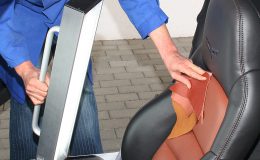Have you lately discovered an unexpected rise in the fracturing or popping noises that your joints make? You’re not the only one. Several people experience this sensation, and it can be rather disconcerting. In this post, we will explore why joints crack, what creates unexpected joint breaking, and when it might be an indication of an underlying issue.
What Creates Joint Fracturing?
Joint breaking is a typical occurrence that commonly occurs when gas bubbles form in the synovial liquid bordering the joints. Synovial liquid is a lubricating substance that reduces rubbing in between the joints. When gas bubbles are formed or liquified, it can create a popping or fracturing audio.
Some individuals might experience joint fracturing extra regularly than others as a result of different aspects, including:
- Tendon or Tendon Movement: When tendons or tendons cross bone surface areas, it can lead to joint fracturing.
- Age: As we age, the cartilage in our joints tends to put on down, boosting the probability of joint cracking hondrexil.
- Arthritis: Joint inflammation, particularly osteoarthritis, can cause joint fracturing as a result of changes in the joint structure.
- Injury: Previous injuries to the joints can result in joint splitting, especially if there was damage to the cartilage material or ligaments.
- Increased Physical Activity: Participating in activities that put stress on the joints, such as running or weightlifting, can cause joint splitting.
It is necessary to keep in mind that joint cracking itself is normally safe and not a cause for worry. However, there are instances when sudden joint fracturing may warrant additional examination.
When Should I Be Concerned?
While occasional alfa lover opinie joint fracturing is typically safe, there are a couple of circumstances where you must speak with a health care expert:
- Pain or Swelling: If you experience pain, swelling, or stiffness along with joint breaking, it could be an indicator of an underlying condition, such as rheumatoid arthritis or bursitis.
- Limited Range of Motion: If you see a reduction in your joint’s series of motion, alongside splitting, it could indicate an injury or joint condition.
- Constant and Loud Cracking: If your joint fracturing is accompanied by constant and loud sounds, it may signify joint instability or cartilage damages.
- Locking or Catching Experience: If your joint catches or locks while cracking, it is a good idea to look for medical interest, as it can indicate an architectural issue within the joint.
If any of these signs apply to you, it is suggested to seek advice from a health care specialist for an appropriate diagnosis and proper treatment.
Exactly How Can I Minimize Joint Splitting?
If joint cracking is triggering discomfort or issue, there are a few techniques that you can attempt to reduce its frequency:
- Strengthen Muscle mass: Enhancing the muscles around the influenced joint can give even more security and potentially decrease joint cracking.
- Improve Adaptability: Routine extending exercises can help improve joint flexibility and lower the likelihood of splitting.
- Warm-Up Prior To Workout: Prior to taking part in physical activity, it is important to appropriately warm up to prepare your joints and minimize joint cracking.
- Use Proper Technique: When performing exercises or tasks, ensure you are making use of the proper technique to minimize tension on the joints.
- Handle Weight: Preserving a healthy and balanced weight can minimize stress on the joints, lowering the regularity of joint fracturing.
Final thought
Joint cracking is a typical event that generally poses no significant health risks. Nevertheless, unexpected adjustments in joint splitting patterns or the presence of going along with signs require more analysis by a health care specialist. By recognizing the causes and carrying out strategies to reduce joint splitting, you can better manage this usual phenomenon and advertise joint health and wellness.












